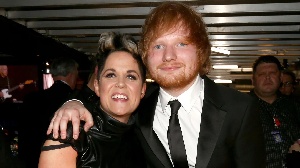
US Supreme Court Ends Ed Sheeran Copyright Battle Over “Thinking Out Loud”
The U.S. Supreme Court has officially put an end to a decade-long copyright battle involving Ed Sheeran’s hit song “Thinking Out Loud.” The court rejected a final appeal from Structured Asset Sales (SAS), closing a contentious legal chapter that began nearly ten years ago.
At the heart of the dispute was a claim that Sheeran’s 2014 ballad plagiarized elements of Marvin Gaye’s classic “Let’s Get It On.” SAS, led by music investor David Pullman, alleged that Sheeran and co-writer Amy Wadge copied chord progressions and sought $100 million in damages.
A Legal Saga Comes to an End
The lawsuit was originally filed in 2016 by the family of Ed Townsend, Gaye’s co-writer, and later expanded by SAS in 2018. Although two separate trials were held, both juries ruled in Sheeran’s favor, finding that any similarities between the songs were based on common musical elements not eligible for copyright protection.
Sheeran and Wadge maintained from the start that “Thinking Out Loud” was independently created, a stance ultimately upheld by a New York jury in 2023. The Supreme Court’s decision not to hear the case marks the final legal word on the matter.
“I will not allow myself to be a piggy bank,” Sheeran told reporters after the verdict, defending his choice to fight the case instead of settling.
Amy Wadge: “It’s Done”
For Amy Wadge, the Supreme Court’s rejection of the appeal brought immense relief.
“It’s done,” she said simply, reflecting on what she described as ten haunting years.
Wadge was 37 and without a hit when she co-wrote “Thinking Out Loud,” a song that would go on to transform her career. It spent over two years on the UK Singles Chart, sold 4.8 million copies, and won Song of the Year at the 2016 Grammy Awards.
Despite the song’s success, Wadge said the legal battles were “terrifying,” and left her feeling like she was “surrounded by wolves.” She also noted the pressure of the case’s broader implications for the music industry.
“I felt responsible. If the verdict went the other way, it could have crushed creativity for songwriters everywhere,” she said.
The Verdict: Chords Aren’t Copyrightable
During the trials, Sheeran’s legal team acknowledged that the chord progression in question was similar to Gaye’s—but argued that such progressions are commonplace in pop music and not eligible for copyright protection.
The courts agreed. Judge Michael Park stated that no reasonable jury could find substantial similarity between the two songs. The Supreme Court’s rejection of SAS’s appeal reaffirms that position and cements the case as a landmark decision in modern music copyright law.
Tattoos and Closure
To mark the end of their ordeal, Sheeran and Wadge both got tattoos bearing the phrase “Independently created,” a key term from the trial’s verdict.
When asked if she’d get another tattoo, Wadge laughed and joked about what her husband might say. She hasn’t yet had the chance to reconnect with Sheeran, who is currently on a European tour, but hopes they can celebrate together soon.
“This ruling ends years of uncertainty,” she said. “It protects not just us, but songwriters everywhere.”





